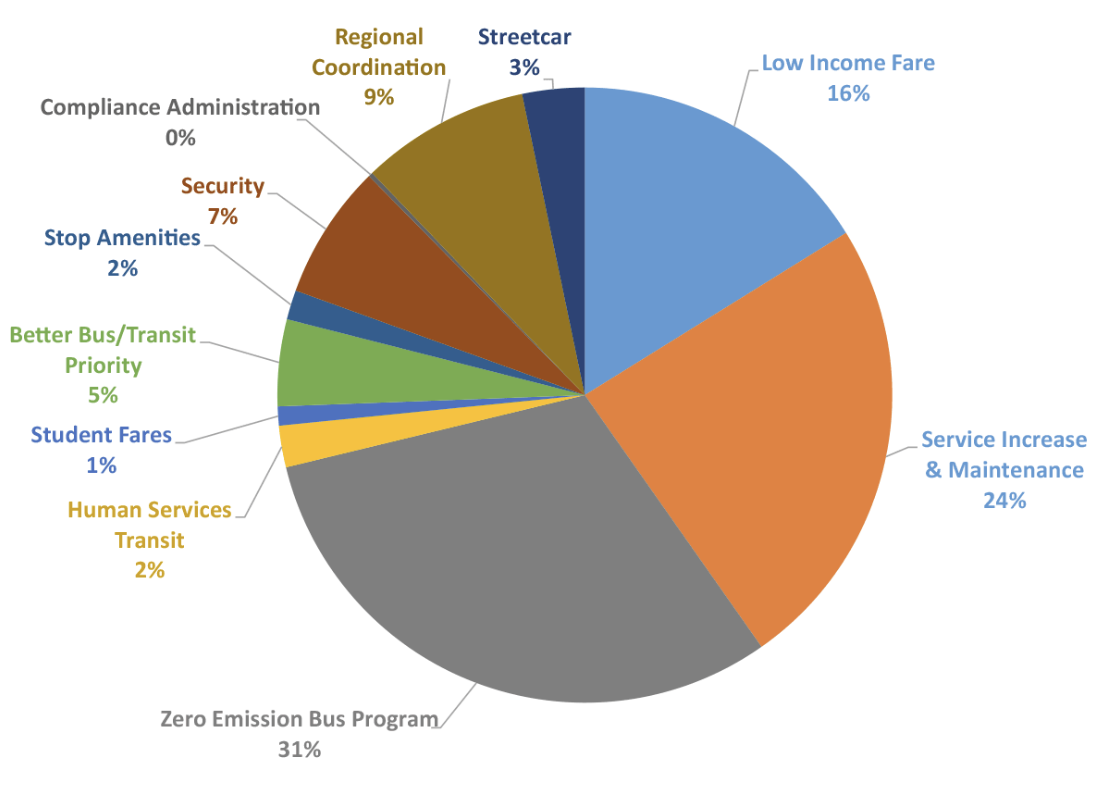TriMet, Portland’s regional transit agency, has plans for how to spend funds from the Statewide Transportation Improvement Fund (STIF) in the fiscal years 2024-2025. Now the agency wants your input on how they should use it.
This funding amounts to about $183 million over two years and makes up just one portion of TriMet’s funding sources. The agency’s 2023 budget is almost $2 billion total, made up of federal grants, operating revenue and tax revenue. But unlike some of those other funding sources, TriMet is required to share their two-year spending plan for these statewide funds and allow for public comment on the proposal.
Here’s how TriMet says it wants to spend this STIF money in fiscal years 2024-2025. (For comparison, this is how they spent their last STIF allotment.)
- $44.2 million for transit service expansion, like “new bus lines, more Frequent Service lines, route changes, earlier/later trips and weekend service.”
- $29.6 million to provide reduced fare for people who earn low incomes, which will support the new summer pass program for high school students who qualify, a free month pass for new and re-enrolling program participants and an increase in free passes for low-income seniors, people with disabilities and veterans.
- $56.7 million for electric bus expansion to support TriMet’s goal of operating a zero-emissions bus fleet by 2040. The plan of fiscal year 2024-2025 calls for “funding for electric buses, more charging infrastructure and project development work for the new Columbia Operating Facility, including a hydrogen fueling station for future fuel cell electric buses.”
- $1.8 million for school transportation, continuing a program offering free transit passes to public high school students in the TriMet service area whose families earn low incomes.
- $16.3 million for regional coordination, which will allow the agency to “maintain and expand transit and last mile shuttle services throughout the metro region” and upgrade their online trip planner so people can plan trips between TriMet and other transit agencies, like C-TRAN in Vancouver.
- $4 million for TriMet’s partnership with Ride Connection, a nonprofit provider of transportation services for seniors and people with disabilities, which will allow TriMet to purchase new vehicles and expand paratransit service.
- $9 million for developing Rose Lanes, which allow for bus and streetcar priority on car-congested streets.
- $3.6 million for bus stop amenities, including “more bus shelters, digital information displays, and ADA improvements at bus stops.”
- $12.8 million for security improvements, including more security cameras and continuing the Safety Response Team program.
- $6 million for calls for “maintaining and expanding funding to further support operations, and long-term asset maintenance and upgrades” for Portland Streetcar.
- $0.4 million for compliance requirements to “ensure that all recipients of the funds in the metro area spend their funds according to the rules of the program.”
Even if funded, some of these programs may be limited by other issues TriMet is facing right now. Most notably, the ongoing bus driver shortage has forced the agency to slash bus service, and it’s hard to imagine the they’ll be able to expand new bus lines if they can’t find people to operate the ones that already exist. The budget proposal acknowledges this, but doesn’t say how TriMet intends to solve this problem.
Check out the full spending proposal here, and be sure to fill out the included survey to tell TriMet which programs are most important to you.



